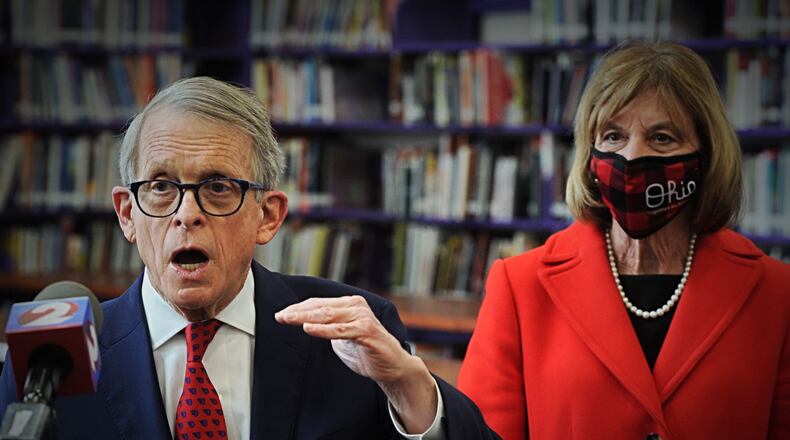Senate Bill 22 would allow a 10-person legislative panel to oversee orders issued by the governor and public health officials during emergencies. The panel would also be able to repeal orders that have been in place for 10 days. Orders would expire after 90 days unless lawmakers extended them.
The bill passed in the Senate on Feb. 17 and in the House on Wednesday. The Senate also approved House changes to the bill Wednesday.
The governor said Thursday that he’s concerned the bill would prevent public health officials and future governors from keeping Ohio safe.
“There’s no governor that I can think of in Ohio who would have not vetoed this bill,” he said. “I will have to veto it not so much for me, because we’re coming out of this pandemic, but I’m very concerned about the future.”
DeWine said the bill would prevent local public health officials from quarantining someone with a communicable disease.
“When the unknown becomes the known, when the hypothetical becomes real, the local health departments and the governor have to have the ability to move very quickly to save lives,” he said. “This is about the future and saving of lives. It would be absolutely irresponsible of me to do anything but veto this bill.”
Ohio House Speaker Bob Cupp, R-Lima, said on Thursday that he “absolutely” has the 60 votes to override DeWine’s veto. The bill cleared the House with 57 votes but a handful of lawmakers who support the bill were absent, he said.
Ohio Senate President Matt Huffman, R-Lima, said he believes he has the 20 votes needed in his chamber to override a gubernatorial veto.

